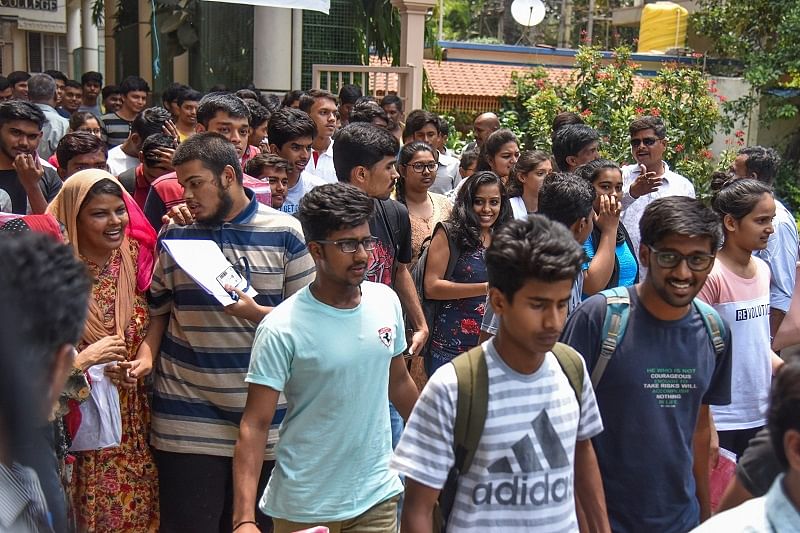
Only 2 per cent of the students who got admission into government and self-financing medical colleges in Tamil Nadu had cleared the mandatory NEET exam without stepping into a coaching centre to prepare for the entrance test, data released by the Tamil Nadu government has revealed.
The data has bolstered the views of educationists and leaders of various political parties that the NEET examination was “discriminatory in nature” against rural students who are forced to fight with those from urban areas who posses better facilities, including those for coaching classes.
NEET is being opposed by almost all political parties in Tamil Nadu, including the ruling AIADMK, and was one of the crucial issues during the 2019 Lok Sabha polls – two students ended their lives in 2017 and 2018 after failing to clear the entrance exam though securing enough marks to get into a medical college in their plus-2 examination.
The government presented the data before a division bench of Justices N Kirubakaran and P Velmurugan of the Madras High Court on Monday during a hearing relating to the NEET exam. On examining the data, the division bench said the trend will place the rural students in a disadvantageous position as they lack facilities of undergoing coaching for competitive exams, while suggesting NEET was “anti-poor.”
According to the data, only 48 students out of the 3,081 who got admissions into medical colleges have been able to clear the NEET exam without going to coaching classes. In the self-financing engineering colleges too, the figure is very less – out of the 1,650 who got admissions only 52 were able to clear the exam without any coaching class.
Education activists say the data shows that additional coaching is needed to appear for NEET which most rural students cannot afford – the government has set up free coaching centres, but they aren’t adequate enough to train students in lakhs.
Prince Gajendrababu, activist and general secretary of State Platform for Common School System (SPCSS –Tamil Nadu), told DH that the government data has vindicated the apprehension raised by activists on NEET being discriminatory against students from rural areas.
“There are two reasons why children in rural areas can’t undergo coaching – financial constraints and accessibility issue. These students in rural areas who even lack basic facilities are pitted against students who are well-off spend lakhs in getting technical training to clear exams like NEET. Obviously the one who gets extra training succeeds and the other lot fails,” Gajendrababu said.
He said the government should scrap NEET and revert back to the old system of admitting students into medical colleges based on their plus-2 marks. Opposition Leader M K Stalin too latched onto the data asking the state and Centre to follow the path of “social justice.”
“The Centre never accepted our opinion that NEET was demolishing the medical dreams of poor students. The Madras High Court has seconded our opinion. We hope at least now the Centre and state governments will walk on the path of social justice,” Stalin said.